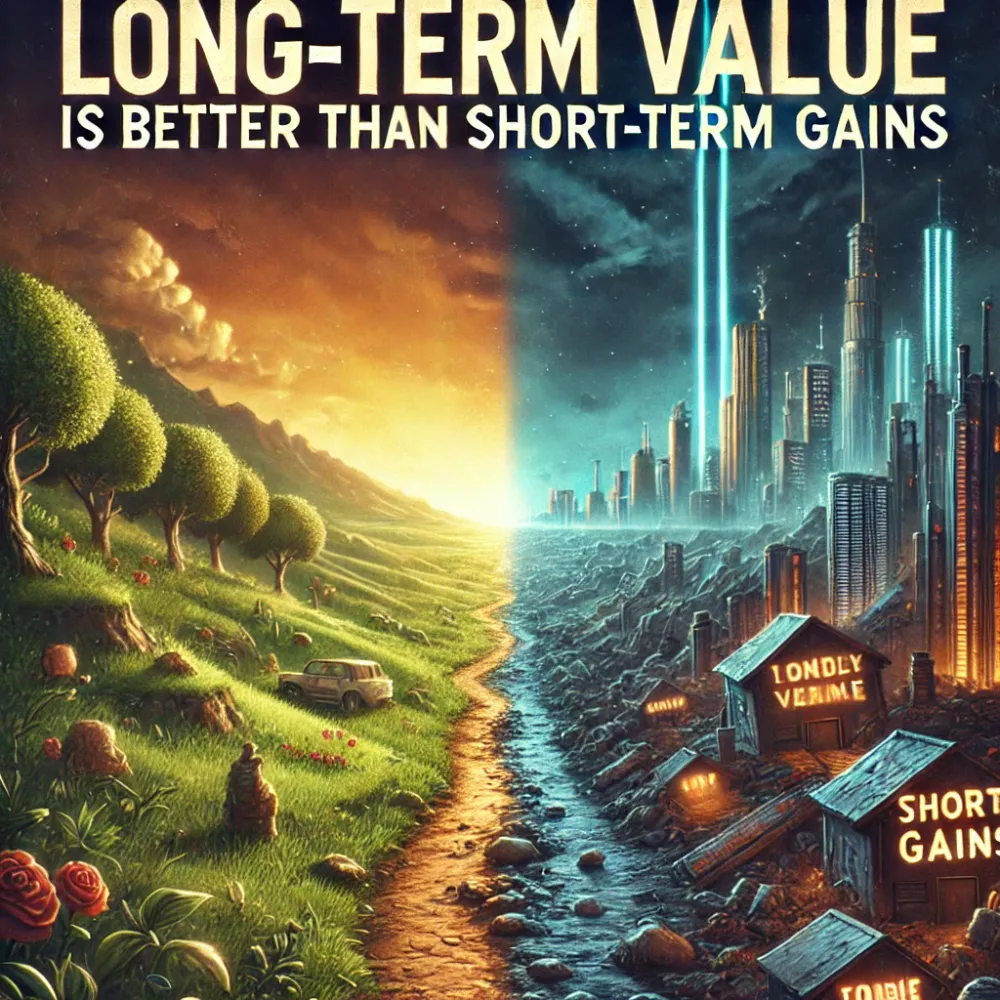Why Long-Term value is better than Short-Term gains in indie game development
It's easy to get caught up in the pursuit of quick wins.
Whether it's rushing a game to market to capitalize on a trend or focusing on immediate revenue through microtransactions and DLC, the allure of short-term gains is strong. However, the most successful indie developers understand that true success comes not from quick profits, but from creating long-term value. By focusing on sustainable practices and building a loyal community, indie developers can achieve lasting success that far outweighs any short-term gains.
The pitfalls of Short-Term gains
Short-term gains often come at the expense of quality, innovation, and reputation. For example, rushing a game to market to meet a deadline or capitalize on a trend can lead to a product that is buggy, unpolished, or simply not ready for players. This not only disappoints fans but can also tarnish a developer’s reputation, making it harder to sell future games.
Moreover, focusing on short-term revenue streams, such as excessive microtransactions or paid content, can alienate players who feel like they are being nickel-and-dimed. While this might generate immediate income, it often results in a loss of trust and loyalty, which is crucial for long-term success. Games like No Man's Sky initially faced backlash due to overpromising and underdelivering, which severely hurt their reputation and sales(eXputer.com,Fungies).
Building Long-Term value
Long-term value in game development comes from focusing on the quality of the game and the experience it offers. This means taking the time to polish the game, ensuring that it runs smoothly, and offering innovative gameplay that keeps players engaged. Games like Stardew Valley and Hades are perfect examples of how a focus on quality and player experience can lead to massive long-term success. These games were not rushed to market; instead, they were carefully crafted and iterated upon, resulting in products that players love and continue to play for years.
Building a community around your game is another key aspect of creating long-term value. By engaging with players, listening to their feedback, and continually improving the game post-launch, developers can foster a loyal fanbase that will support their future projects. This community-driven approach not only ensures that the game remains relevant but also helps in marketing future titles(The Indie).
The economic benefits of Long-Term thinking
While it may seem counterintuitive, focusing on long-term value can also be more profitable in the long run. A well-received game with a loyal community can generate revenue for years through sales, merchandise, and expansions. Moreover, a strong reputation built on delivering quality products can make it easier to secure funding, attract talent, and collaborate with other developers. In contrast, a focus on short-term gains might lead to a quick influx of cash, but often at the cost of future opportunities.
The success of indie games like Celeste and Hollow Knight demonstrates the financial viability of long-term thinking. Both games were developed with a focus on quality and community engagement, leading to sustained sales and critical acclaim long after their initial release. These games prove that prioritizing long-term value can be more financially rewarding than chasing quick profits.
Conclusion: The strategic advantage of Long-Term value
In conclusion, while short-term gains may provide immediate rewards, they are often fleeting and can come at the cost of long-term success. Indie developers who focus on creating long-term value through quality, community building, and sustainable practices are more likely to achieve lasting success. By investing in their products and their players, developers can build a strong foundation for future projects and ensure that their games continue to generate revenue and enjoyment for years to come.




